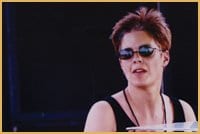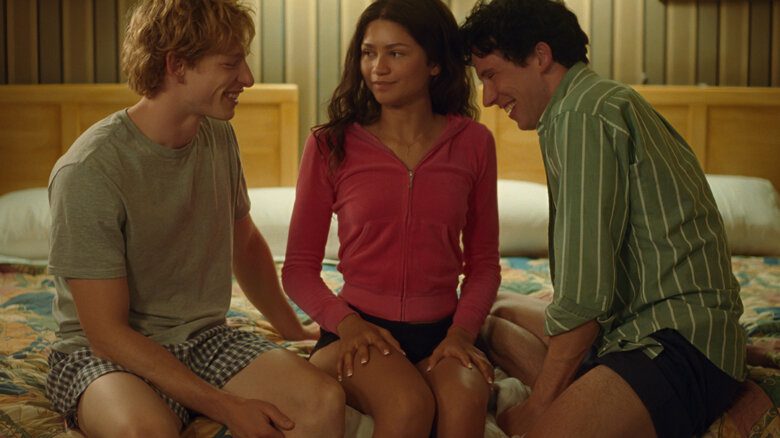Question one: When jazz is instrumental, is there really such a thing as ‘gay’ jazz?
Question two: If a gay jazz musician plays in the forest and there’s nobody there to hear it, did they really make a sound?
A group of academics recently hosted a decidedly under-promoted and under-subscribed event —a two-day gathering called Comin’ Out Swingin’: Sexualities In Improvisation.
Not only was the music constant but the conference featured a number of specifically queer topics on its bill, from keynote speech “When did Jazz Go Straight?” to the presentation of a paper entitled “But Does it Sound Gay?” to a talk by celebrated, out jazz pianist Marilyn Lerner.
The conference, held at the University of British Columbia, was part of a multi-country four million dollar research project entitled Improvisation, Community and Social Practice; professors from various North American schools gathered to share dialogue about forms and practices of improvisation and how it involves gender and sexuality.
“There’s been very little writing on sexuality and jazz and improvised music,” explains conference co-producer Julie Smith who is also executive director of the Coastal Jazz and Blues Society. “It is not so visible. The thing is about bringing it out into the open so people are talking about this kind of thing more and more. Because jazz in general is sort of known for its macho posturing,” she notes, “it is sort of thought of as ‘straight music,’ so that is the thing we’re trying to dissect.”
The conference’s keynote speaker Sherri Tucker, a University of Kansas professor who focuses much of her work on gender and race in music, admits when she first heard about the event’s focus, she was hesitant about the conference attempts to find common ground where there perhaps was none.
“I was the keynote speaker and I didn’t talk about queer jazz,” she laughs, adding “I’m not comfortable saying that there is or isn’t.
“I’m trying to find other ways besides claiming that there could be a queer sound, a queer way to sing. There’s been so many problems with making these kind of sweeping statements. That is why I wanted to talk about heterosexuality in my speech, because jazz has been used as a sign of heterosexuality a lot, and that is something we’ve got to know about,” she contends.
Included at the symposium was a film screening of The Snake Boy about Coco Zhao, a Chinese jazz singer of moderate success who speaks with candour throughout the film about his gender, orientation and being queer in China.
“Homosexuality in China is like an iceberg,” states Zhao in the film. “You can only see one percent of it; most of it is underwater.”
Additionally, a discussion about composer/pianist Billy Strayhorn entitled “Strayhorn’s Queer Music” enlightened the engaged audience about the life of the “Take the A Train” composer who worked with Duke Ellington at the height of his career.
When respected pianist Marilyn Lerner took the podium for her talk “Miss Overboard” she touched briefly but poignantly upon the topic of her own sexuality, specifically in the form of an emotional track entitled “They’re All In Families.” The number was built upon a sampling of a hate-based message anonymously left on a GLBT support centre’s voice mail.
Lerner used audio software to manipulate the message into an even more incendiary sound bite of “die…die…faggot…fucking faggot…cock…die of AIDS…die of AIDS…fuck faggot…die of AIDS…fuck -k-k-k-k-k” with the k repeated rapidly to resemble machine gun sounds.
The sound clip was one of the most poignant moments of the conference, a purposeful reminder of the sound of hate that still exists today. In fact, Lerner admits that when she first heard about the conference theme, she was initially hesitant, but reminded herself of the importance of the dialogue. “My first response was I don’t believe there’s gay music but my second response —and something I think is important —is if gay people before me hadn’t put themselves out there to quite a lot of suffering, then I wouldn’t be having this reaction.”
Lerner added that “it is important to distinguish between gay and lesbian, because there tends to be violence towards men who are gay because it is so threatening to the power structure.
“There’s been very few men who have come out as gay jazz musicians; my teacher Fred Hersch did. He told me that he originally didn’t want to play ballads because he didn’t want to sound too sensitive, too faggy,” she recalls.
“In terms of women, I don’t think anyone really gives a shit. Nobody cares.”
Although the conference, a free event, was poorly attended, organizers considered it a very successful weekend.
“From my perspective,” explains co-producer Kevin McNeilly, “success is just having it happen, having interactions of people talking to each other and sharing ideas. That is a measure of success for me.”

 Why you can trust Xtra
Why you can trust Xtra


